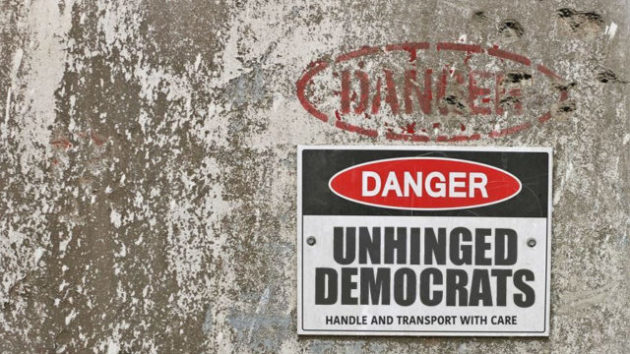Conservatives are destroying democracy. You have probably heard this Leftist talking point many times. The response to this claim is: “We’re not a democracy, we’re a constitutional republic.” This leads to an important question: Are there any differences between the two, and if so, why do they matter?
The answer is there are profound differences between a democracy and a constitutional republic. They are crucial to every aspect of American life. Here are three quotes from the Founding Fathers. They remind us to defend our constitutional republic with all our might.
“Real liberty is neither found in despotism or the extremes of democracy, but in moderate governments.” … Alexander Hamilton. Democracy excludes the minority’s rights. Democracy is like two wolves and a lamb voting on what to eat for lunch. A republic is a well-armed lamb contesting the vote. Hamilton recognized the potential for bad outcomes, harm coming from real democracy.
Said another way: What is the difference between a democracy and a mob? Recently there have been attacks on two important aspects of our republic: the Electoral College and the filibuster. Those who argue against them see both as a threat to democracy. They argue a candidate should not win the presidency unless they win the popular vote.
There is a shortcoming in such an approach. The issue is they exclude the minority. Hamilton correctly observed that in a democracy, the majority have the right to take away the rights of the minority. That is true simply by being the majority. This is an opportunity for tyranny.
Think about the issues of slavery or indentured servitude, or gun rights or religious liberty. In all these areas, the majority has the ability to seize the rights of the minority. Democracy simply does not balance power. The Founders saw the consequences of letting the majority have total power. They constituted our system to ensure everyone’s opinion matters.
The Electoral College ensures the interest of every state will be considered in our federal elections. That is why it exists. Opposition to the Electoral College is opposition to considering every state’s interests. Isn’t that in a way anti-democratic?
The filibuster guarantees the party who is not in power still has a say in policy. Every aspect of our republic has been carefully crafted. The minority and their rights are not be stripped away at the behest of the majority.
“The republican is the only form of government which is not eternally at open or secret war with the rights of mankind.”… Thomas Jefferson. Jefferson too saw profound issues with democracy. He recognized the secret war that occurs under a democracy. It is the continual war for power and control. The secret war is fought in many political systems. Plato observed, “Dictatorship naturally arises out of democracy.”
The Founders knew of this secret war well. They set out to erase it from America. They tried to achieve this through the separation of powers. There are three branches of government; legislative, judicial, and executive. Each branch has been given a distinct role. Each role differs for each branch. The quest for absolute power is mitigated when there is no absolute power to achieve.
“Remember, democracy never lasts long. It soon wastes, exhausts, and murders itself. There is never a democracy that did not commit suicide.” … John Adams. Adams knew that democracy is hard and often fraught with human error. For this reason, democracy often leads to a government takeover of the people, organized by the people.
The classic tale is the French Revolution. The working class overthrew the monarchy. They were in a quest for democracy. The majority immediately established a new man to rule over them: Napoleon Bonaparte. Democracy is hard to organize and often leads to political suicide.
Democracy never lasts long. Soon enough someone gets appointment as ruler over the masses. To avoid this, the Founders formed our republic. They formed our government so the people are both heard and represented. Representative democracy became their solution to this complex issue. In our original government the majority and the minority can have their voice heard by representatives. Those representatives pursue legislation for those they represent.
A democracy and a constitutional republic are very different. Those differences have a profound impact. For those who still choose democracy over a constitutional republic here is a question. Why have more and more countries followed the lead of the U.S. by creating a constitution and separating the powers of government? Is our constitutional republic that much worse than democracy?
The Founders were explicit about their views on democracy. For that reason, they looked hard, and found solutions. Their solutions led to what we now call a constitutional republic. Our system may not be perfect, none is. But, it is one in which every voice can be heard.
